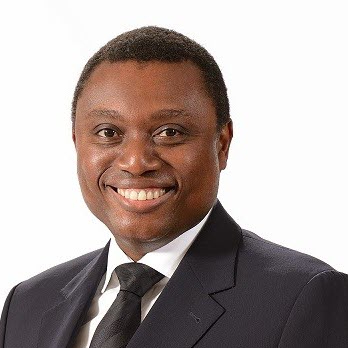Standard Bank CEO Sim Tshabalala believes the African continent has the world’s best demographics to allow financial institutions to flourish.

Even with open banking, fintechs must partner with banks to succeed, Tshabalala says
Speaking at Sibos 2021, Tshabalala says the population is getting younger, healthier, wealthier and more productive. As such, the opportunities for incumbents and disruptors alike within financial services are plentiful.
He believes that anybody involved in the retail side of financial services – whether payment, insurance or asset management – will have “vast opportunities if they are correctly positioned”.
On the corporate side, Tshabalala believes there’s an investment boom likely to take off, particularly in South Africa and eastern Africa, as these regions insert themselves into global value chains.
He says this will provide distinct opportunities for corporates who can supply the infrastructure needed in those areas.
He adds that across both retail and wholesale there’s the key ingredient of accelerated digitisation, which has occurred not just due to Covid-19, but also as a result of Africans becoming more connected.
“There’s evidence that in the last 10 years, the number of cell phone connections has doubled to half a billion and is likely to go to a billion by 2024,” Tshabalala says.
Given that context, it’s clear that the opportunity for facilitating payments is “incredibly exciting”.
Fintechs and banks need each other
Tshabalala sees more collaboration and partnerships between incumbents and disruptors rather than outright conflict.
“There was a time not too long ago, people were saying fintechs and Big Tech are going to be eating the lunch of financial institutions. Now they say, ‘Well, perhaps we’ll be sharing lunch. We’ll be buying!’”
Tshabalala says this truce has occurred because, even in areas with open banking, it has not been as easy for fintechs and telcos to enter the space as they might have thought.
The need to comply with anti-money laundering and anti-terrorist financing measures and other compliance risks has led to numerous partnerships with financial institutions.
The consequence is that while there will be new entrants, “eating away at certain segments”, outside innovators will continue to need financial institutions. Meanwhile, the financial institutions that will survive are those that adapt at speed and partner with fintechs.
Self-disruptors will thrive in Africa
This proposition applies as much in the retail space as it does in the wholesale space, with the African free trade area a key example.
“We work very closely with the authorities”, Tshabalala says, helping them deal with the non-tariff barriers and talking to them about using blockchain and artificial intelligence to provide products and services that reduce the friction that arises from traditional payments.
In short, in both retail and wholesale, the winners are going to be those that disrupt themselves and are able to work with the disruptors, Tshabalala says.
He adds that one area Standard Bank is ‘self-disrupting’ is in transforming into a full-platform business that reduces barriers and friction for the consumer between the different products and services a bank traditionally offers.
“There was a time when, if you wanted to have a financial service, you’d buy a product, and the banks would sell you the product. And I think that there’s still a lot of room for that.”
But what Standard Bank aims to do now is connect people to “generators of power”, which helps them with financing, moving beyond simply providing products and services and reducing the friction of buying financial services.
Tshabalala says there’s no question that Standard Bank will remain a bank and a financial services organisation as we know it for the foreseeable future.
“However, we will [also] be providing people with products and services that facilitate their lives through activities that are adjacent to financial services.”
Credit: Source link


Comments are closed.